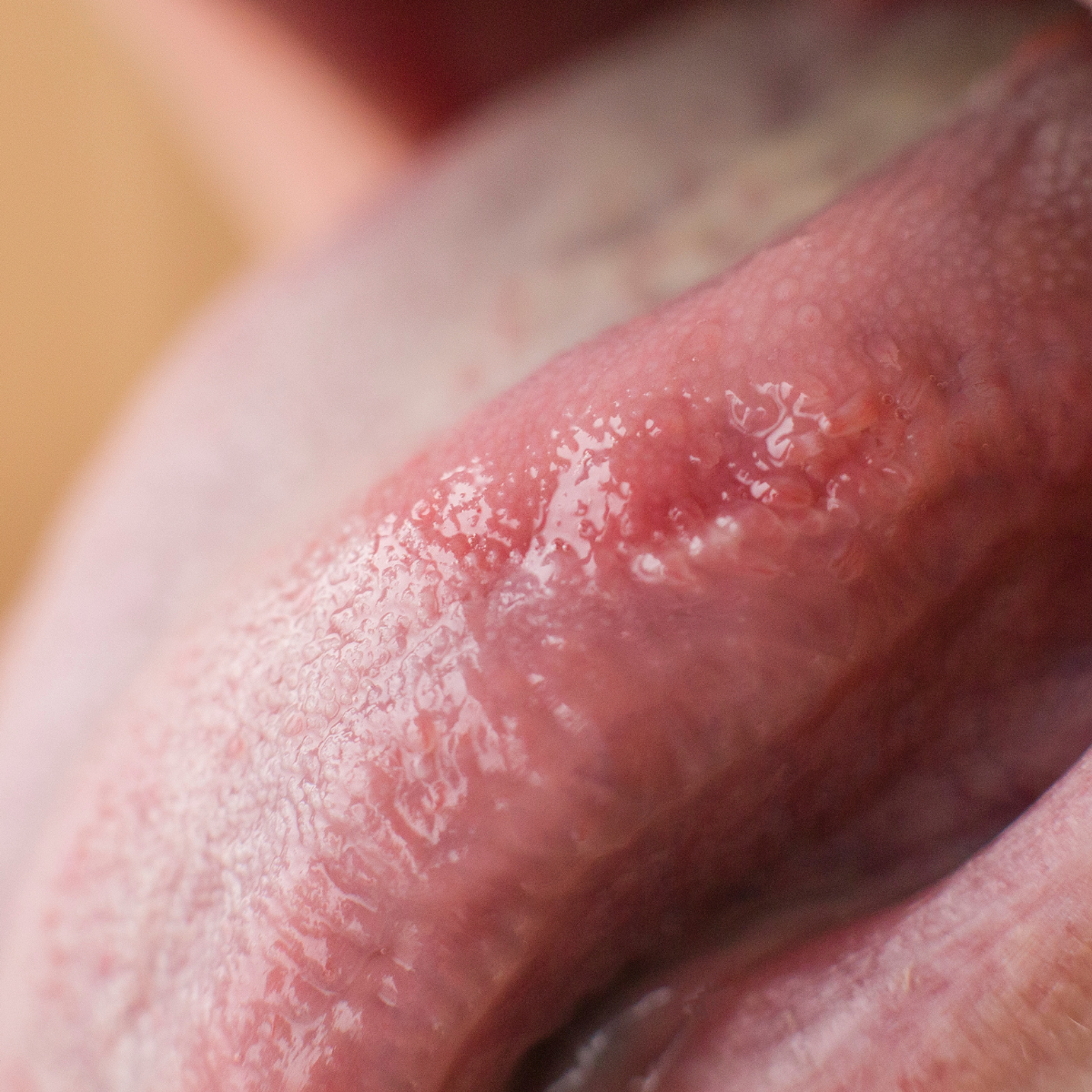Causes and risk factors
Inflammation of tongue is caused due to a variety of infections by bacteria, viruses, and yeast. Herpes simplex is one of the most common infections which can lead to inflammation of tongue. Dryness of mouth caused due to Sjogren’s syndrome predisposes a person to glossitis. A variety of skin conditions like aphthous ulcers, lichen planus, etc., can also lead to inflammation of the tongue. Injury due to trauma, burns; and consumption of alcohol, tobacco, hot and spicy food, and other irritants too trigger this condition. Although the role is still not clear, studies have shown that hormonal changes can also cause inflammation of the tongue. Glossitis is often seen in cancer patients who undergo chemotherapy. Nutritional deficiency as a side effect of certain medications are also other contributing factors.
Clinical presentation:
Glossitis is of three types: Acute, chronic, and idiopathic type. The complaints appear gradually. The tongue is swollen and appears smooth. The smooth surface of the tongue occurs due to loss of papillae. Color changes occur and soreness is felt. It becomes pale or red in color. A discomfort is felt in the mouth. Chewing and swallowing of food becomes difficult. An enlarged tongue can also lead to obstruction of airways.
Investigations:
Diagnosis is done on the basis of the complaints narrated by the patient and the local examination is carried out. Routine and specialized blood tests along with certain other investigations are carried out for finding out the underlying cause.
Treatment:
Treating the underlying cause is the main line of treatment. Medications like antibiotics or antimicrobial medications are prescribed. Maintenance of good oral hygiene, changes in diet and lifestyle, and avoiding the irritating substances are certain essential step which need to be implemented. In severe cases where the enlarged tongue is causing obstruction of airway, the patient needs to undergo strict medical care and hence is hospitalized for appropriate treatment.
Other modes of treatment:
Certain other modes of treatment can also be helpful in coping up with the symptoms. Taking into consideration the symptoms in a holistic way, homoeopathy can offer a good aid for the relief of the symptoms. The Ayurvedic system of medicine which uses herbs and synthetic derivates can also be beneficial in combating the complaints.






























